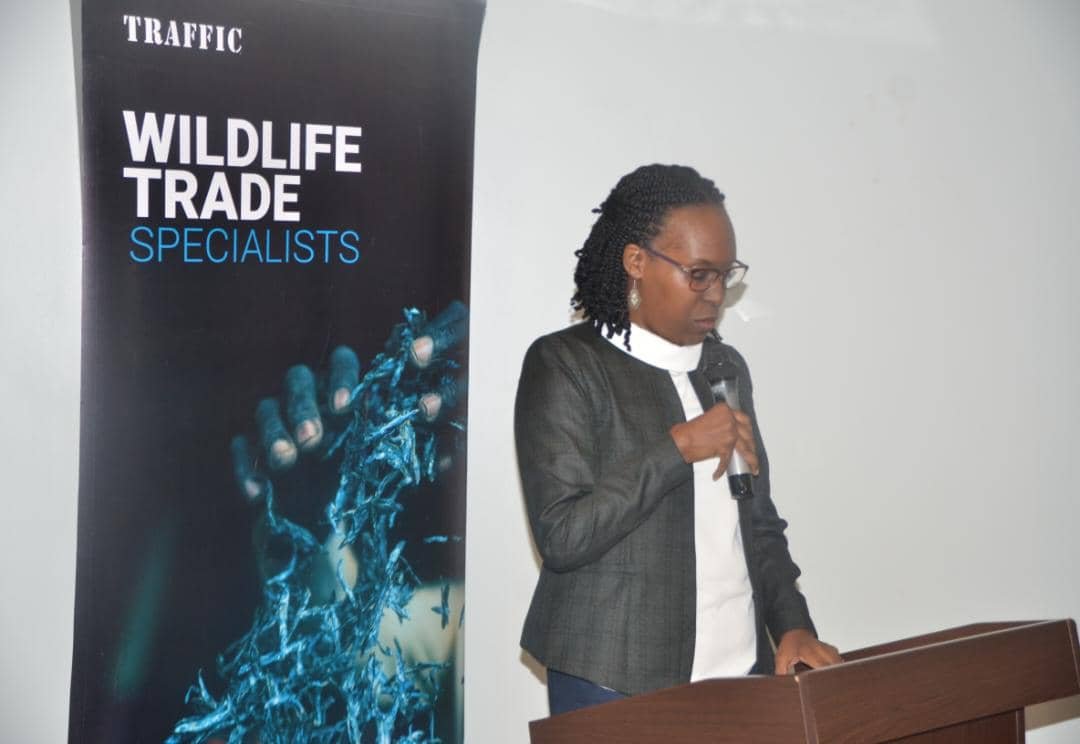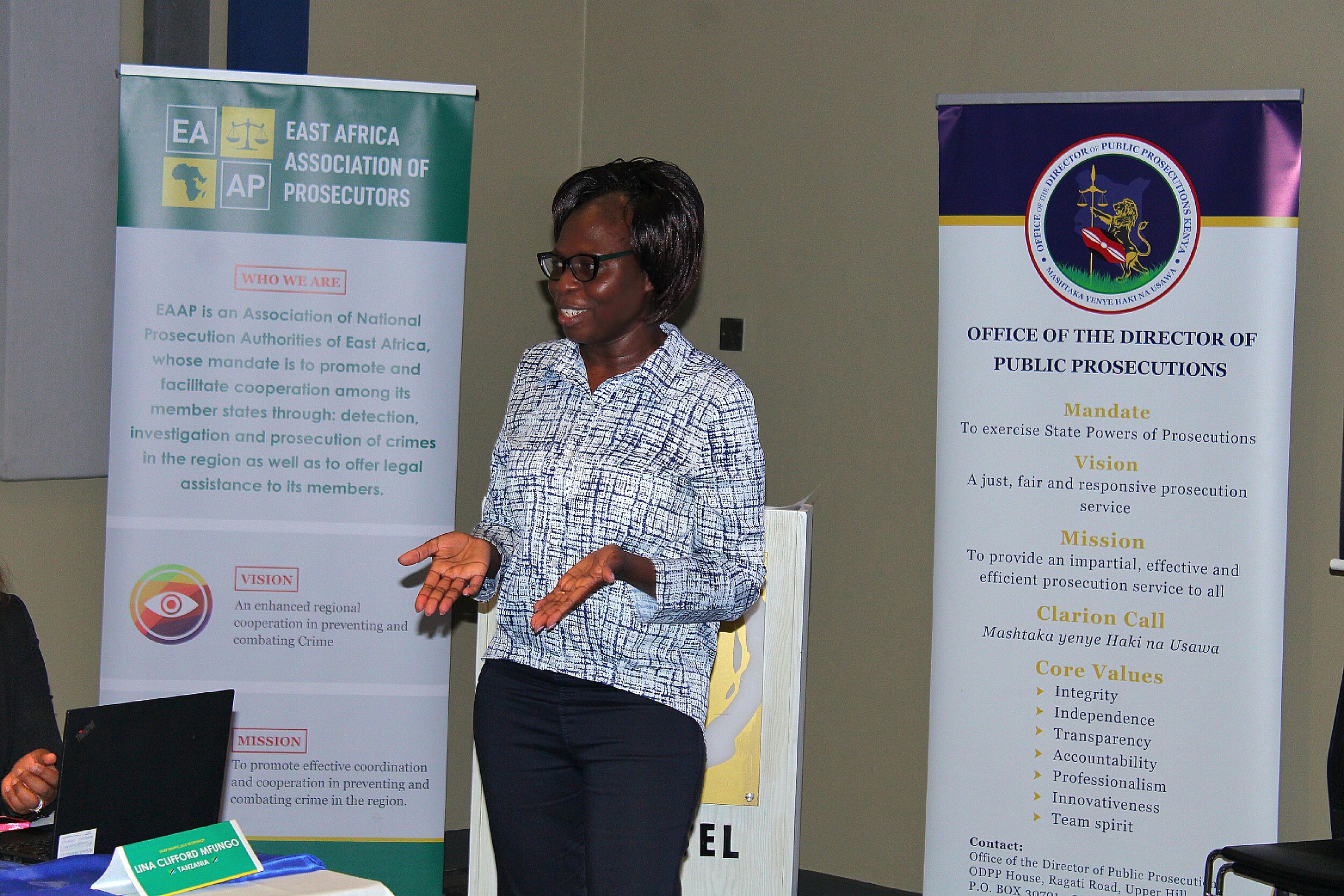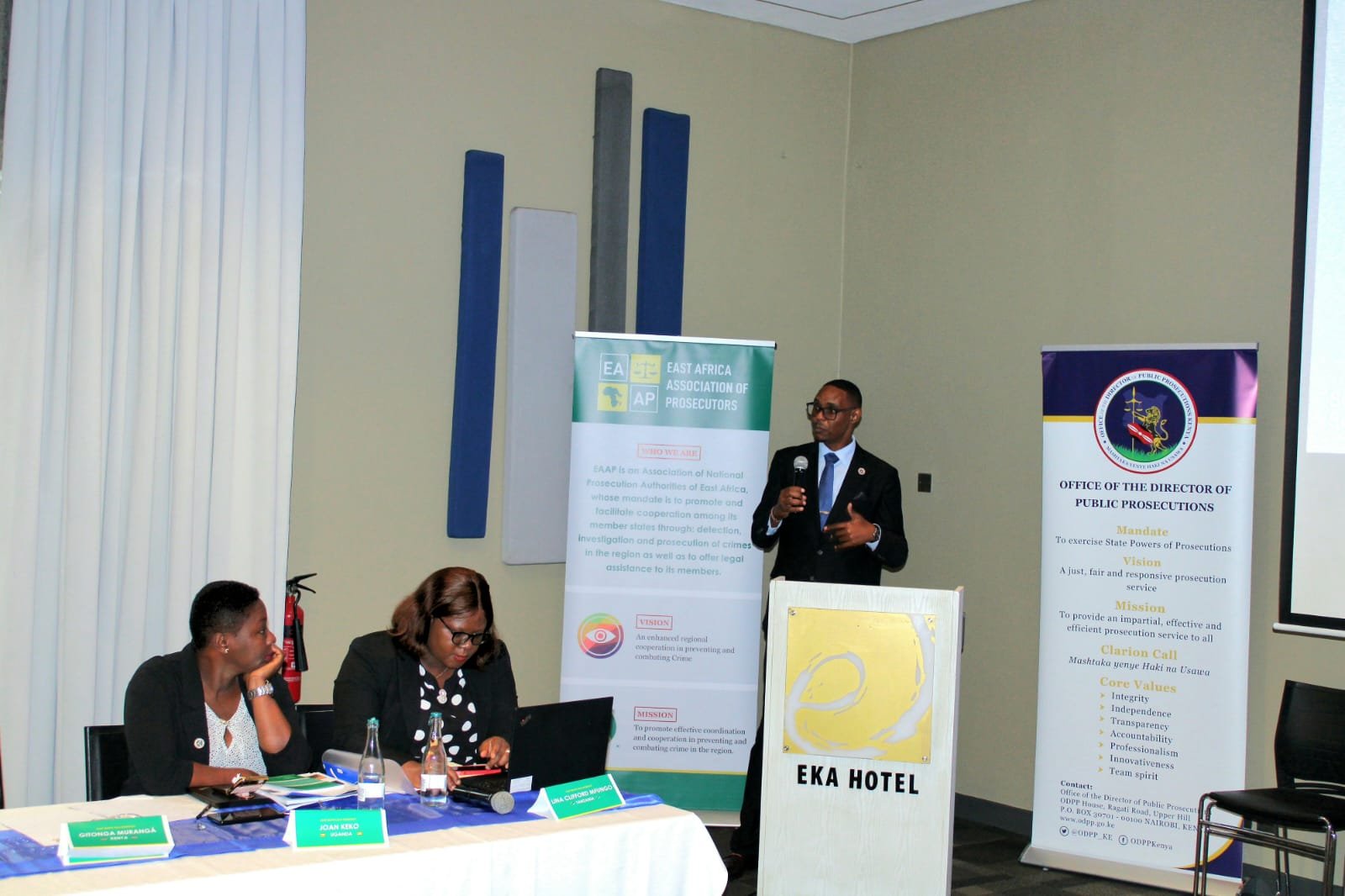EAAP STRATEGIC PLANNING MEETING AND TRAINING OF THE EAAP FOCAL POINTS (EX-COM) ON THE USE AND APPLICATION OF THE COURT CASE TRACKING TOOL AND CROSS-BORDER WILDLIFE CRIME TRENDS - KIGALI, RWANDA FROM 18TH TO 22ND JUNE 2023








The EAAP held a focal points workshop for the EAAP member states in the Executive Committee of the Association in Kigali, Rwanda from the 18th to 22nd June 2023 to undertake development of the EAAP strategic plan and to be further trained on the case tracking tool to be embedded on the EAAP website.
The workshop which was hosted by the EAAP and the National Public Prosecution Authority (NPPA) Rwanda, was supported through the generous funding of TRAFFIC International East Africa and International Development Law Organization (IDLO) Kenya.
During the three (3) day workshop, focal points and prosecutors from the EAAP member states of Rwanda, Kenya, Mozambique, Tanzania, and Uganda, developed a further draft of the EAAP strategic plan 2023-2027, deliberated on the functionalities of the wildlife case tracking tool and finalized on the wildlife case digest. This workshop was able to build up on the Nairobi, workshop held from the 25th to 27th April 2023 that developed the draft wildlife case digest.
The EAAP strategic plan is a 5 -year strategy and during this workshop the delegates reviewed and developed the strategic objectives and activities that would be the priority areas for the Association. The next steps would be to develop the implementation matrix, annual plan as the same are circulated to members for further comments. Further meetings are anticipated to finalize on the remaining areas of the strategic plan.
On the other hand, the wildlife case tracking tool is designed to monitor wildlife crime court cases. It is intended to contain records and information on the cases collected to enhance the capacity and knowledge of regional prosecutors on case monitoring, analysis, and act as a reference point for prosecuting the cases. The case tracking tool is to be linked to the EAAP website to enable easy access by prosecutors in the EAAP member prosecution authorities and in the region.
Finally, the wildlife case digest will undergo final edits and is expected to be uploaded to the website once completed.
EAAP focal points’ workshop for the validation of the wildlife case digest, updating of the EAAP strategic plan and introduction of the IDLO EATOC project held from
25th to 27th of april 2023

















The Eastern Africa Association of Prosecutors (EAAP) held a 3-day workshop from 25th to 27th April 2023 in Nairobi for Focal Point Persons, representing the Executive Committee of the Association that sought to:
Validate the Eastern Africa Wildlife Case Digest.
Update the Draft EAAP Strategic Plan 2022-2026 to help the association achieve its vision and mission; as well as
Introduce the International Development Law Organization (IDLO) Eastern Africa Transnational Organized Crime (EATOC) Project.
The Case Digest will contain high-profile wildlife cases being prosecuted and new critical laws being enacted and amended by various jurisdictions.
The IDLO EATOC Project will entail the development of Regional Policy Frameworks on Transnational Organised Crimes (TOC). The Project will also engage investigators, prosecutors & judicial officers in the region to increasingly coordinate their identification, prevention, and response to transnational organised crimes
DPP KENYA HOSTS AFRICA REGIONAL CONFERENCE








DPP Kenya hosts Africa Regional Conference
The Director of Public Prosecutions, Mr Noordin Haji played host to the various heads of prosecuting authorities, Attorney General and DPPs from thirty (30) Prosecuting authorities which convened in Mombasa, Kenya to attend the International Association of Prosecutors (IAP) 4th Africa and Indian Ocean Region; and the East Africa Association of Prosecutors, Conference which took place from 16th May 2022 at the Sarova Whitesands.
“Effective Mechanisms to Respond to Emerging Crimes and Trans-national Organised Crime in Africa: Country Experiences and Challenges” was the theme of the conference, which also had other international criminal justice experts in attendance. The Conference was the first ever African and Indian Ocean Regional Conference to take place in Eastern Africa.
In recognition of the complex and rapidly evolving crime landscape, the theme was developed to address the challenges posed by the increased globalisation and digitisation, which has allowed for crime to transcend past the confines of the country that it is committed in, with criminal networks now spanning across multiple States and Jurisdictions. Further, with the development of technological advancements such as blockchain and cryptocurrencies, perpetrators are able to carry out these crimes with minimal risks of detection. These crimes undermine state authority and sovereignty, threaten national security and the rule of law, fuel corruption and destabilize sustainable economic, social and political development, impacting the quality of life of citizens, particularly the poor, women, and children. The Conference was divided into the following sessions: emerging crimes; cryptocurrency and money laundering, harmonisation of asset recovery legal frameworks; and environmental crimes.
The Conference sought to develop regional strategies for addressing the following emerging crimes cybercrime, identity-related crimes, trafficking in cultural property, environmental and wildlife crime, corruption, drug trafficking, human trafficking, economic crimes and money laundering, organ trafficking, and child sexual exploitation, among others. It was identified that the difficulties relating to effective investigation and prosecution of these crimes consisted of;
Increased complexity, scale and volume of cases as investigations and prosecutions now involve multiple jurisdictions with evidence, suspects, witnesses, victims or assets being located in multiple countries;
Lengthy bureaucratic processes with regards to international cooperation and collaboration;
Knowledge and skills gap when it comes to the prosecution of these crimes due to the ever-evolving nature of these crimes;
Need for technical expertise;
Limited resources;
Underdeveloped legislation;
Inadequate record keeping;
Lack of transparency; and
Involvement of certain professions, such as lawyers making detection harder, among others.
It was agreed that there was a need to:
Strengthen and enhance Mutual Legal Assistance (MLA) frameworks;
Increase capacity building of prosecutors, law enforcement agencies and relevant stakeholders through training programs, exchange programs and sharing of best practices;
Enhance identification, tracing, freezing, as well as confiscation of funds and proceeds of crimes, thus removing the financial incentive and monetary benefits of these crimes;
Harmonise legislation;
Enhance the use of data and technological developments;
Leverage informal communication channels to execute processes that could otherwise be obstructed by lengthy bureaucratic procedures;
Embrace a multisectoral approach;
Leverage on the use of alternatives to prosecution, namely plea bargain agreements; and
Strengthen, reform, or develop legislation, policies and guidelines, among others.
Additionally, the East African Association of Prosecutors (EAAP), whose membership is drawn from 11 countries, namely Burundi, DRC, Ethiopia, Kenya, Rwanda, South Sudan, Malawi, Mozambique, Tanzania, Uganda and Zambia, with the objective of enhancing cooperation amongst prosecution authorities in the Eastern African region, convened for an Extraordinary General Meeting on the sidelines of the Conference. The assembly of heads of prosecution authorities of the EAAP reviewed the Association’s Constitution to enhance their mandate and improve their capacity to deliver justice through transnational cooperation. This Extraordinary Meeting further followed up on the status of implementation of the resolutions of the previous General Meeting held in August of 2021 in Arusha, Tanzania.
Regional engagements such as these are a manifestation of the political will to develop strategies for concerted efforts against transnational crimes. The ODPP, through the Excellence Charter 2020-2023, affirms a commitment to enhancing international cooperation in developing robust legal frameworks underpinned by the rule of law. This is in recognition of the fact that a strengthened criminal justice sector is critical to the developmental agenda of the region and the African continent.
THE TECHNICAL COMMITTEE MEETING OF THE EAST AFRICA ASSOCIATION OF PROSECUTORS AND TRAINING OF PROSECUTORS ON ASSET RECOVERY, ILLICIT FINANCIAL FLOWS, INTERNATIONAL COOPERATION ON COMBATING WILDLIFE & OTHER SERIOUS CRIMES
Nairobi, Kenya on 14th -17th March, 2022
The East Africa Association of Prosecutors (EAAP) held a training workshop for the technical committee of the Association, comprising the focal points of the member countries, in Nairobi, Kenya on 14th -17th March, 2022 under the theme “the use of asset recovery, Anti-money laundering and international cooperation in combating wildlife crime and other transnational crimes.”
The workshop featured presentations and deliberations on the following areas:
1. Overview of Wildlife Crime & trends in East Africa;
2. Addressing Transnational Organized Crime and international Cooperation to Combat illicit Trafficking of Wildlife, Narcotics, and other serious Crimes;
3. Following the Money and Asset Recovery as tools to combat Transnational Organized Crimes;
4. International legal and practical mechanisms for successful recovery of Wildlife Crime;
5. Emerging Transnational Organized Crimes: Combating Wildlife Crimes linked to the Internet
The presentations were done by the focal points from member countries as well as experts from United Nations Office on Drugs and Crime (UNODC), African Wildlife Foundation, Space for Giants, and the East Africa Community Secretariat.
The Workshop further provided an opportunity for the EAAP Technical Committee to draft and prepare the structure of the next EAAP Strategic Plan, after the strategic plan 2016-2022 comes to an end.
The delegates from member countries got the opportunity to visit the Prosecution Training Institute (PTI) in Loresho, Kenya as it develops towards being the premier prosecution training institute in the region.





